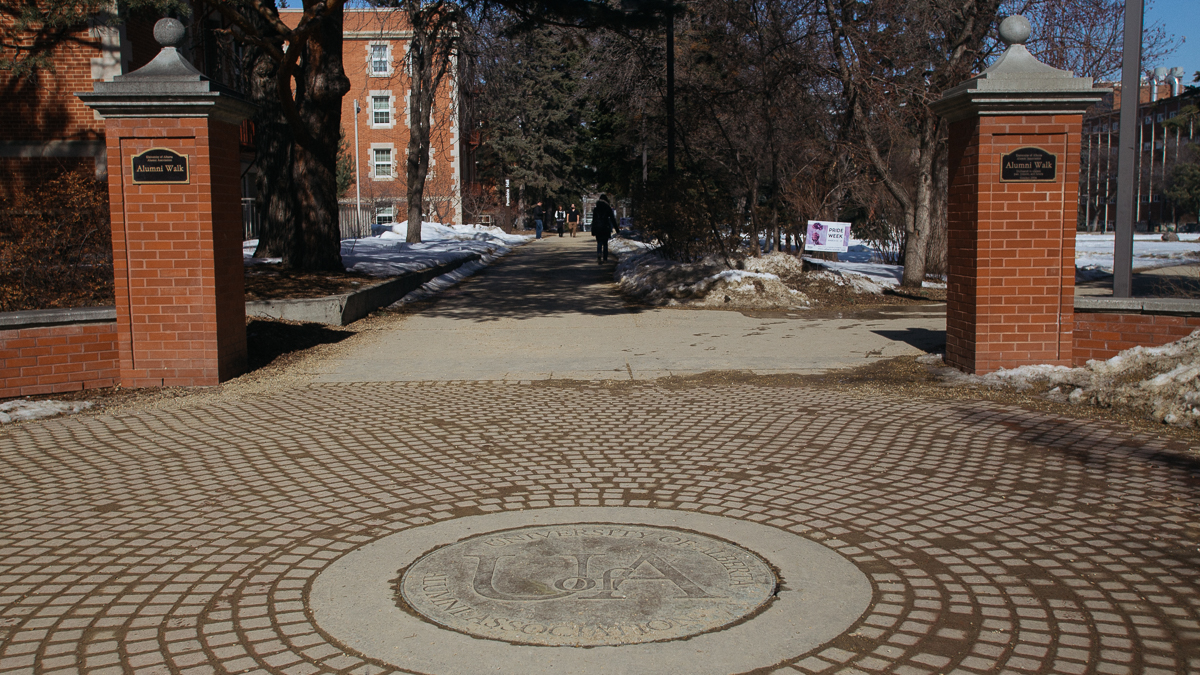U of A releases revised 2020-21 budget, no change to tuition and residence increases
The budget outlines 1,000 job losses that will occur over the next two years
 Rosty Soroka
Rosty SorokaThe University of Alberta released its revised 2020-21 proposed budget which will still see tuition, meal plan, and residence rate increases.
The U of A was forced to revise its internal consolidated budget after receiving higher than projected and expected cuts to funding from the provincial government. The new proposed budget makes no changes to tuition, meal plan, and residence rate increases while outlining approximately 1,000 job losses. The revised proposals maintain student financial aid increases to assist students with increased tuition.
The original consolidated budget saw the U of A running a deficit in 2019-20 and then small surpluses every year after until 2022-23. The revised budget shows the U of A running a deficit in its consolidated budget for every year since 2019-20 to 2022-23, with the exception of 2020-21.
On February 27, the United Conservative Party-led provincial government tabled Budget 2020 which froze student financial aid funding levels and made further reductions to university funding. Cuts were applied differentially, with the U of A receiving an 11 per cent cut — after receiving a 6.9 per cent cut in Budget 2019. The two cuts translate to a loss of $110.3 million for the U of A. The U of A planned for a five per cent cut in its proposed budget.
The proposed revised budget will be presented first to the General Faculties Academic Planning Committee and the Board Finance and Property Committee. The revised budget will be presented to the Board of Governors on March 25 for final approval — six days before the provincial government’s deadline for submission.
The U of A will now run deficits for three out of the next four years as opposed to only one within its consolidated budget.
| U of A Consolidated Budget Year | Original Budget Proposal | Revised Budget Proposal |
| 2019-20 | Approx. $14.5 million deficit | Approx. $14.5 million deficit |
| 2020-21 | $1.6 million surplus | Approx. $1.9 million surplus |
| 2021-22 | $2.5 million surplus | $1.5 million deficit |
| 2022-23 | $279,000 surplus | $790,000 deficit |
The consolidated budget includes the budgets for operating, ancillary, research, capital, and special-purpose funds. Ancillary operations include residence, dinning services, the bookstore, the ONECard office, and parking operations. The capital budget includes materials, IT equipment, maintenance, repairs, utilities, and buildings.
Within the original budget proposal, the capital budget would continue to run decreasing deficits every year to 2022-23 inclusive, and ancillary services was not projected to make a surplus until 2022-23. These figures will not change.
The change lies in the operating budget — which contains core teaching and academic programming, indirect costs of research, and staff compensation. The budget was not going to face any deficits until 2022-23. Under the revised budget, increasing deficits will be forecasted after 2020-21.
| U of A Operating Budget Year | Original Budget Proposal | Revised Budget Proposal |
| 2019-20 | $7.1 million surplus | $7.1 million surplus |
| 2020-21 | $18.1 million surplus | $8.0 million surplus |
| 2021-22 | $2.2 million surplus | Approx. $1.8 million deficit |
| 2022-23 | $6.0 million deficit | $7.1 million deficit |
1,000 jobs lost under revised budget
Due to the cuts from the provincial government, the U of A anticipates 400 job losses in 2019-20 and 635 in 2020-21.
According to the budget, approximately 150 staff and faculty retire from the U of A. The documents said given the budget reductions, the “intent” is to “collapse” these positions “wherever possible.”
Additionally, the documents said the U of A expects voluntary attribution to be “minimal,” given the “tight economic environment in Edmonton.”
“Regrettably this leaves many job losses to be realized through displacements,” the documents said.




